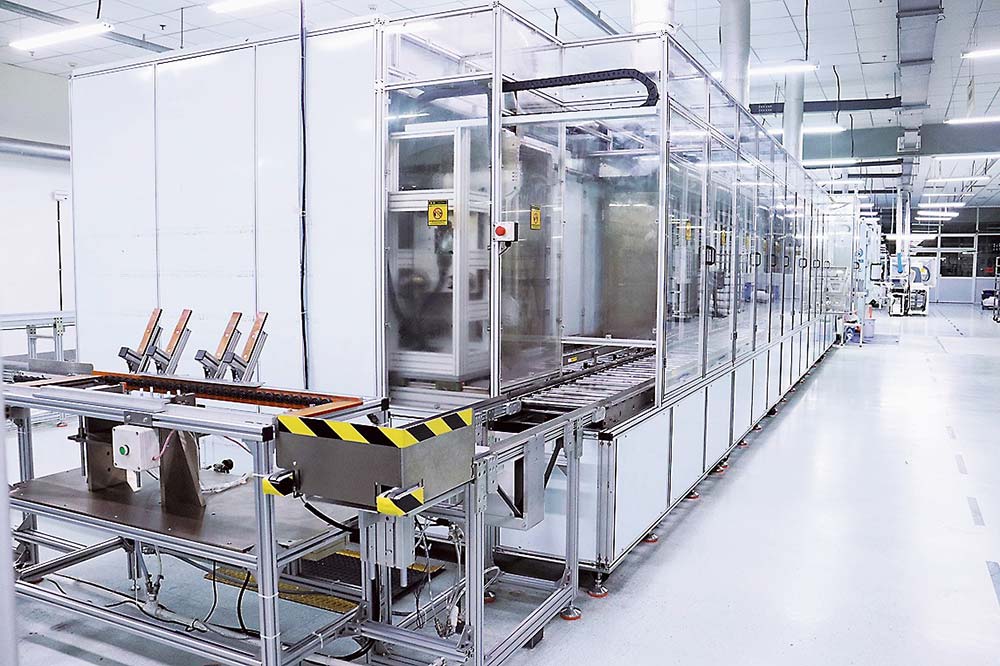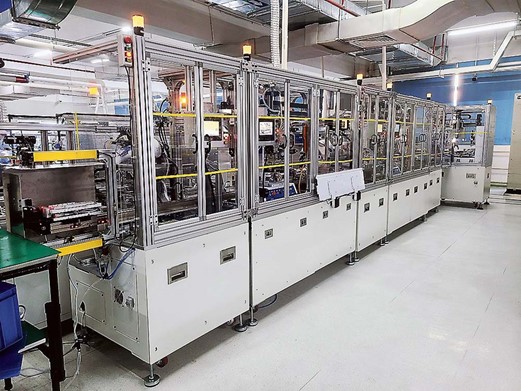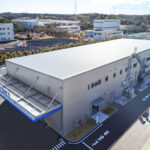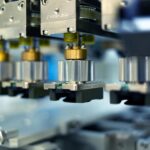ASIA ELECTRONICS INDUSTRYYOUR WINDOW TO SMART MANUFACTURING
Japanese Component Makers Turn to Automation in China
Recently, Japanese electronic component manufacturers have been accelerating the advancement of manufacturing at their Chinese factories. Specifically, they embark on strengthening automation and manpower saving to further improve quality and productivity. By application, they promote production capacity enhancement, targeting the electric vehicle (EV) and new energy-related markets.
Mainly, China factories of Japanese parts makers are pursuing automation and manpower saving in their production lines. Moreover, they are pursuing dramatic improvement in productivity by converting their factories into smart factories.
Beef up Production Capacity for Global Market
NICHICON Corporation plans to increase the production capacity at its Suqian plant (Suqian, Jiangsu Province) for conductive polymer aluminum solid electrolytic capacitors and film capacitors for smoothing inverters for xEVs. As a result, it will increase supply for the global market and quickly respond to customer demand. Particularly, the production capacity of film capacitors for xEVs will double to prepare for higher demand in FY2025 and beyond.

Builds Smart Factory
For its part, IRISO Electronics Co., Ltd. is setting up advanced manufacturing at its Nantong Plant (Nantong, Jiangsu Province). It was established as the company’s second production base in China. The plant is fully automated with labor-saving features, and conducts high-value-added production, building on the concept of a smart factory,
Specifically, the Nantong Plant mainly produces flexible printed circuit (FPC) connectors and floating board-to-board connectors for automotive applications. It began mass production of 0.4mm pitch board-to-board connectors and 0.4mm pitch FPC connectors for automotive applications in FY2023. Also, beginning 2024, the plant will produce Z-move floating connectors.
Quick Response to EV Market
Meanwhile, the Panyu plant of Sumida Corporation in Guangzhou, Guangdong Province is at the center of its seven factories in China. The company will continue to invest in facilities, further speed up the process from design to mass production, and implement high value-added production activities with thorough quality improvement.
In 2023, production at Sumida’s Chinese plants remained strong, driven by EVs and other automotive-related products, recharging facilities, and solar power generation-related products. In particular, the company’s speedy response to the Chinese EV market, with its rapid pace of technological evolution, from prototyping to mass production start-up, has received high evaluations.
Implements High Value-Added Manufacturing
Meanwhile, SMK Corporation‘s Dongguan Plant (Dongguan, Guangdong Province) has been developing high-value-added manufacturing through the adoption of automation and labor-saving measures. Also, new products and new customer expansion are underway.
Particularly, the Dongguan plant has started automated production of remote controls for housing equipment, which has been well received by customers. Further, it will continue to focus on automation in the current fiscal year. The development of automated machines for jacks, which had been produced by hand, has been completed, and is now undergoing approval process.
Also, a mass-production system for wire-to-board connectors for automotive batteries for Chinese customers was established in May.

Full-Scale Automation
OTAX Co., Ltd.’s Shenzhen plant (Shenzhen City, Guangdong Province) is strongly promoting automation and labor saving. In fact, majority of DIP switches and terminal blocks are assembled using automated machines, and a system has been established to automate even small-lot production. The company is also making progress in automated production of power switches through product upgrade.
Additionally, the Shenzhen plant has developed its production management system that uses Big Data to enable paperless production processes. As part of the company’s efforts to strengthen its automotive business, it has also acquired IATF 16949 certification.
Meanwhile, the Huaian Plant (Huaian, Jiangsu Province) of Teikoku Tsushin Kogyo Co., Ltd. pursues automation and labor-saving, and has dramatically improved productivity per worker. As Japanese engineers will begin full-scale business trips this year, the company will accelerate its labor-saving efforts with an eye on the entire production line.
This is a translation of a Japanese article originally published in Dempa Shimbun Daily.
-19 June 2024-




